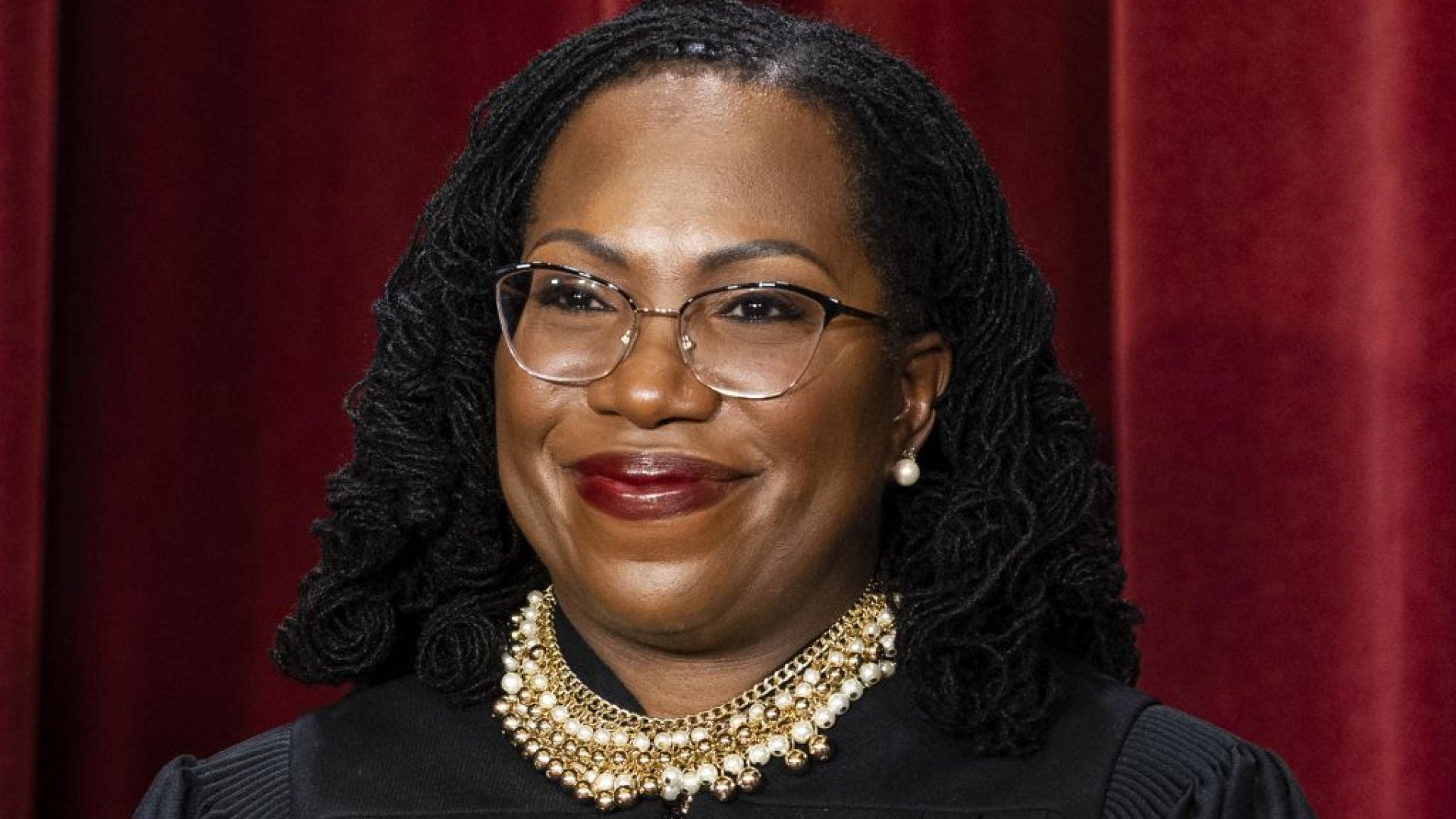
Supreme Court Justice Ketanji Brown Jackson continues to make her mark, not just on the bench but also in the hearts and minds of those who look up to her. As she embarks on a nationwide tour promoting her new memoir, “Lovely One,”Justice Jackson offers a deeply personal look into her life, work and the challenges she has faced along the way.
Jackson recounts the moment she learned of her nomination to the high court—a moment that left her blood “a roaring ocean in my ears.” For Jackson, the call from President Joe Biden in early 2022 was more than a professional milestone; it was the culmination of a lifetime of perseverance, hard work, and a profound sense of purpose.
“From my perspective, my arrival at the pinnacle of the legal profession was indeed groundbreaking, the culmination of a life spent toiling in relative obscurity, marked by my being suddenly thrust into the white-hot spotlight of national prominence,” Jackson writes in her book, “Lovely One.” She added, “For many, my seat at the table represents the realization of our country’s highest ideals in a land that promises opportunity and equality to all.”
A thoughtful questioner, a prolific opinion writer and a steadfast advocate for justice, Supreme Court Justice Jackson has already established herself as a formidable force on the court.
However, “Lovely One” doesn’t focus on the complexities of law or the inner workings of the Supreme Court. Instead, it presents the story of a modern Black woman navigating the demands of a high-powered career and motherhood. Jackson opens up about the challenges of juggling her professional responsibilities with the needs of her family, including her daughter’s diagnosis of mild autism spectrum disorder. She describes the exhaustion that led to stolen naps in Safeway supermarket parking lots and the stress of parent-teacher conferences that didn’t go as planned.
Yet, amid these struggles, Jackson celebrates the victories—both personal and professional. She writes with warmth about her husband, Dr. Patrick Jackson, a prominent surgeon, and their journey as a family.
The title of her memoir, Lovely One, is a nod to her name, Ketanji Onyika, chosen by her parents from a list provided by an influential aunt. The name, which means “Lovely One,” has always been a source of pride for Jackson—a reminder of her heritage and the strong women who have shaped her life.
Speaking at the Apollo Theater in Harlem, Jackson emphasized the need for the court to remain accountable to the people, reminding us that “in a democracy, the people decide the form and the structure of government.”
In a candid interview with CBS’ Gayle King, Justice Jackson expanded on themes from her memoir, reflecting on her powerful dissent in the Idaho abortion case. Known for her strong, clear voice in legal opinions, Jackson explained her approach to dissenting from the majority. “A dissent is the opportunity for the Justices to express their different views with respect to what the majority has done,” she said. “I had a difference of opinion, and I wanted to make clear why I thought what I did in that situation.” Her dissent in the case has been described as “fiery” and “searing,” a testament to her commitment to clarity and justice in the face of legal and ethical complexities.
During the interview, King also touched on the ongoing debate about potential term limits for Supreme Court Justices, which has gained attention in political circles. While President Biden has proposed exploring such reforms, Jackson was careful to remain neutral, focusing instead on the importance of public engagement. “I’m not participating in the actual political debate,” she noted. “But I’m very interested in the fact that people are really engaged in the democratic process and thinking about the Court.”
Justice Jackson’s memoir comes at a critical time when the Supreme Court is under intense scrutiny, with several landmark decisions expected in the coming terms. Her reflections in her book and during the interview highlight the delicate balance she maintains between her judicial responsibilities and her personal convictions. When asked by King whether serving on the Supreme Court is everything she hoped it would be, Jackson’s response was both humble and heartfelt: “It’s such an honor to do this work. I’m so privileged to have the opportunity to serve in this way and very grateful.”